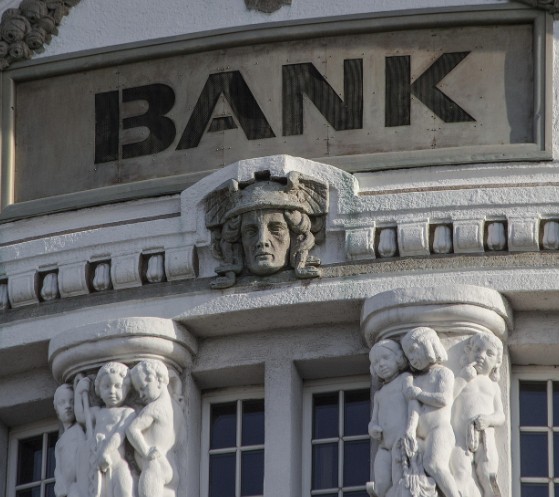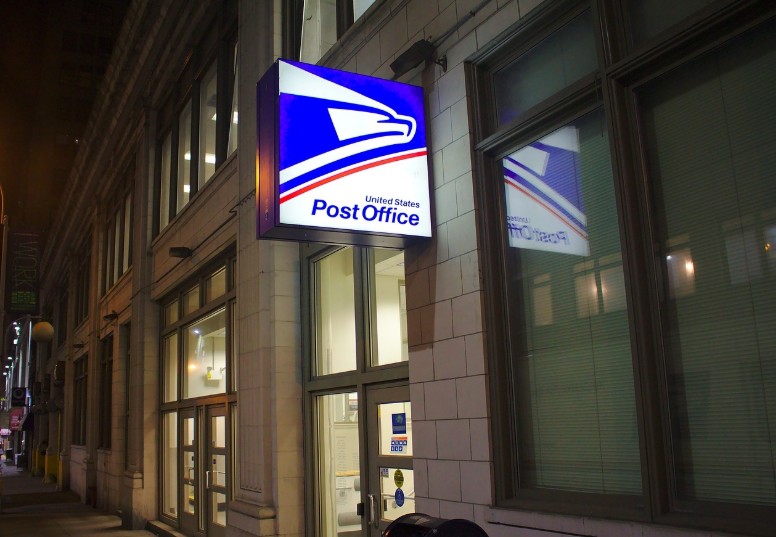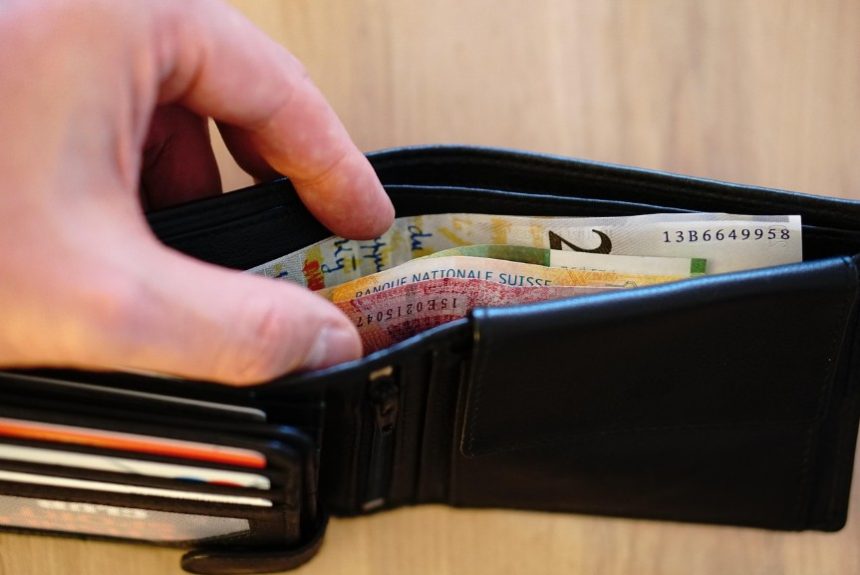As banking rapidly evolves across the UK, people are increasingly asking: Can I pay money into my bank account via the Post Office? With high street bank closures on the rise and local access to financial services becoming more limited, the Post Office has become an essential part of modern UK banking.
The simple answer is yes, you can—but there’s more to know to make the most of this service. Whether you are depositing cash from your business, paying in birthday money, or managing personal savings, using the Post Office for banking is a practical, often overlooked solution.
Can I Pay Money Into My Bank Account via the Post Office?
Many UK residents are now asking this question because traditional banking options are disappearing from local high streets. Over the last few years, thousands of bank branches have closed as banks encourage customers to move online.
This shift has left many people, especially in rural villages and small towns, without local access to banking services.
The Post Office has stepped in to fill this gap. Thanks to partnerships with most UK banks, the Post Office now offers Everyday Banking services, allowing customers to carry out essential transactions such as:
- Depositing cash
- Depositing cheques
- Withdrawing cash
- Checking account balances
This has made the Post Office an increasingly important place for people who prefer in-person banking or who simply no longer have a nearby bank branch.
Which UK Banks Allow You to Pay MoneyInto Your Account via the Post Office?

Not all banks allow you to deposit money at the Post Office, so the first thing you should do is check whether your bank is part of the Post Office’s Everyday Banking partnership.
Major Banks That Support Post Office Deposits:
- Barclays
- HSBC
- Lloyds
- Halifax
- NatWest
- TSB
- Santander
- Nationwide
These banks, along with many building societies, allow you to pay in both cash and cheques via the Post Office.
However, some digital-only banks like Monzo or Starling may not support Post Office deposits. It’s essential to check your specific bank’s policy, as some banks may limit Post Office services to personal accounts but exclude business accounts, or they may have unique procedures.
How Can You Check if Your Bank Supports It?
- Visit your bank’s website
- Call your bank’s customer service line
- Visit the Post Office’s Everyday Banking website for the full list of participating banks
What Do You Need to Bring to Pay Money Into Your Bank Account at the Post Office?
Can You Deposit Without a Debit Card?
No, you generally need to bring either:
- Your debit cardis linked to the account, or
- A paying-in slip provided by your bank
Some banks may also offer mobile app deposit barcodes that can be scanned at the Post Office, but this is less common.
Why Does It Matter?
The method you use depends on your bank’s specific agreement with the Post Office. For most personal accounts, using a debit card is sufficient. For some business accounts or when depositing cheques, you may need a pre-printed paying-in slip.
To avoid problems:
- Check your bank’s instructions on Post Office deposits
- Ensure you have the correct documents or payment slips before you go
How Do You Deposit Money Into Your Bank Account at the Post Office?

The process is straightforward, but it’s useful to know exactly what happens when you arrive at the counter.
Step-by-Step Process:
- Visit your local Post Office branch.
- Provide your debit card or paying-in slip to the cashier.
- Hand over the cash or cheques you want to deposit.
- The cashier will process the transaction using the Post Office’s system linked to your bank.
- You will receive a receipt as proof of deposit.
The Post Office accepts:
- Cash (notes and coins) – Make sure coins are bagged correctly if depositing a large amount.
- Cheques – These follow your bank’s standard cheque clearing process.
Some Post Offices may also have self-service machines, but these are not yet as widely available as they are in bank branches.
How Long Does It Take for Post Office Deposits to Reach Your Bank Account?
When Will Cash Deposits Show in Your Bank Account?
- Same-Day Credit: Most Post Office cash deposits made before the daily cut-off time (usually around 4 pm) are credited to your account the same day.
- Next Working Day: Deposits made after the cut-off time may not appear until the following working day.
When Will Cheque Deposits Clear?
- Cheques deposited at the Post Office typically take two to five working days to clear, just like at a bank branch.
- The Post Office sends cheques to your bank for processing, so the speed depends on the bank’s own clearing systems.
Why Is It Important?
If you need the money urgently, make sure to deposit it early in the day. For time-sensitive payments, cash deposits are much quicker than cheques.
It’s also worth noting that weekend deposits might take longer to appear in your account due to standard banking hours.
What Are the Cash and Cheque Deposit Limits at the Post Office?
How Much Cash Can You Deposit at the Post Office?
The deposit limit depends on:
- Your bank’s policy
- Whether you are using a personal or business account
- The cash handling capacity of your local Post Office branch
Typical cash deposit limits range from £2,000 to £20,000 per transaction. Some banks may set daily limits, especially for business accounts.
Are There Limits on Coin Deposits?
Yes, many Post Office branches:
- Accept a maximum of £250 in coins per transaction
- Require coins to be bagged in correct denominations
Small Post Office branches may have even lower coin deposit limits due to storage restrictions.
Can You Deposit Large Cheques?
There is usually no upper limit on cheque deposits, but remember:
- Large cheques may be subject to additional bank verification.
- The standard cheque clearance period still applies.
Always check with your bank and local Post Office branch if you plan to make unusually large deposits.
What Are the Benefits of Paying Money at the Post Office?
Why Should You Use the Post Office for Deposits?

1. Local Accessibility
With many bank branches closing, the Post Office often remains the nearest option for in-person banking, especially in rural areas.
2. Longer Opening Hours
Many Post Office branches open earlier and close later than traditional banks, and some are open on Saturdays. This flexibility makes it easier to fit banking into your daily routine.
3. Community Support
By using Post Office services, you are helping to keep your local Post Office open. Post Offices are vital community hubs that offer more than just banking—they provide essential postal, payment, and travel services.
4. Time and Cost Savings
Depositing money at your local Post Office saves you the hassle of travelling to distant bank branches or city centres, reducing transport costs and time spent.
5. One-Stop Convenience
You can handle multiple errands in one trip:
- Post parcels
- Pay bills
- Buy stamps
- Deposit money into your bank account
- Top up prepaid cards and utilities
What Should You Check Before Depositing Money at the Post Office?
Key Things to Confirm:
- Does your bank support Post Office deposits?
- Do you need a debit card, a paying-in slip, or both?
- What are your bank’s maximum deposit limits at the Post Office?
- What are the cut-off times at your local branch for same-day processing?
- Is your deposit personal or business-related? Some processes may differ.
It’s also useful to check:
- Whether your local branch can handle large amounts of cash or coins.
- The latest updates on Post Office services in your area, especially if there are branch closures or reduced hours.
By preparing in advance, you can make sure your visit to the Post Office goes smoothly and you don’t miss cut-off times or face unexpected restrictions.
Can You Withdraw Money or Check Your Balance at the Post Office?
What Other Banking Services Can You Access?
In addition to paying money into your bank account, you can:
- Withdraw cash using your debit card and PIN
- Check your bank account balance
- Get printed mini-statements at some Post Offices
These services are extremely useful if local cash machines are unavailable or your bank branch has closed.
Why Is the Post Office Banking Service Important in the UK?
The Post Office has become a lifeline for people who need face-to-face banking:
- It helps rural and small-town communities where banks have closed.
- It provides a familiar, in-person service for elderly customers and people who are not comfortable banking online.
- It supports small businesses that need to deposit cash regularly.
As banks continue to cut physical branches, the Post Office ensures that vital banking services remain accessible to people across the UK.
Final Thoughts: Can I Pay Money Into My Bank Account via the Post Office?
Yes, you absolutely can.
The Post Office offers a valuable, reliable service for depositing money into your bank account—whether it’s cash or cheques.
Before you visit:
- Confirm your bank supports Post Office deposits.
- Know what identification or paperwork you need.
- Understand the deposit limits and processing times.
The Post Office is more than just a place to send letters—it’s now a key player in the UK’s everyday banking network, providing accessible financial services to millions of people.
So next time you’re asking, can I pay money into my bank account via the Post Office?—remember the answer is a definite yes, and it might just be the easiest option available to you.






